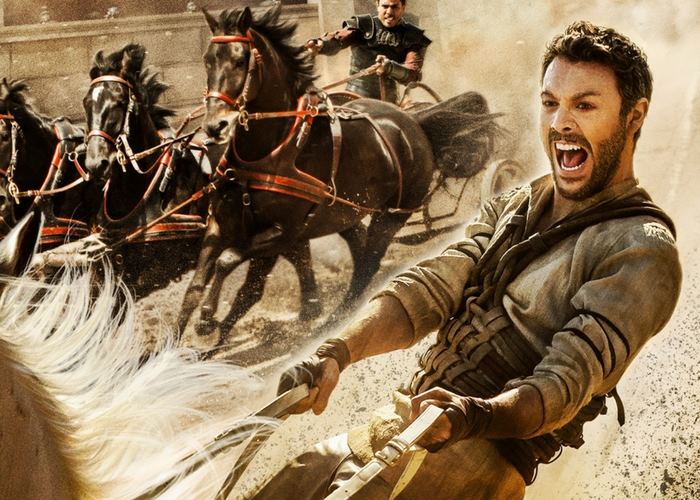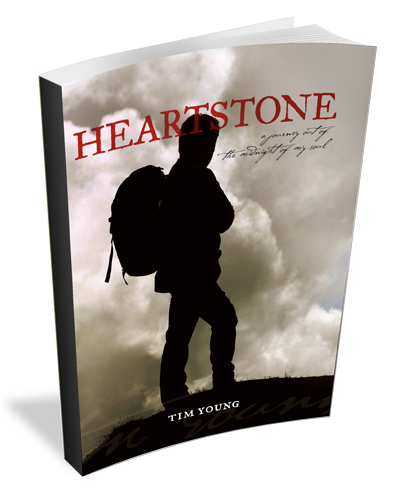The pile of books that I’d like to read keeps growing and so does the list of movies I’d like to watch. One of the movies on my watch list was the remake of Ben-Hur. So, recently after digging out from a New England snow storm…I made some dinner, poured a glass of wine and rented Ben-Hur.
Didn’t know what to expect from this remake since the 1959 film, based on Lew Wallace’s nineteenth century novel ‘Ben-Hur: A Tale of the Christ’, starring Charlton Heston was so epic. I think just about everyone would agree that Charlton Heston would be a tough act to follow.
That didn’t stop Roma Downey and Mark Burnett from considering a streamlined remake of the 1959 film. Like its predecessor, the remake of Ben-Hur, features a charismatic actor (Jack Huston) as Ben-Hur, epic scenery of the period, and an absolutely stunning chariot race! But the remake takes a bit of a different path from the original with more of an emphasis on the power of Jesus Christ to bring about forgiveness — a welcome emphasis that is so needed today.
Spoiler Alert
If you haven’t seen any of the movies or need a refresher, here is the basic storyline of the movie. Judah Ben-Hur is a Jewish aristocrat living in Roman-occupied Jerusalem during the time of Christ. Messala (Toby Kebbell) is a young Roman the family adopted and has become like a brother to Judah. Messala convinces himself that he doesn’t fit in and to prove his worth, decides to pursue a career as a Roman soldier. After some time of fighting in some of the most distant outposts of the empire, Messala returns and attempts to reunite with his family.
The Roman occupation was a difficult time for all and to make things worse, Judah Ben-Hur’s family was harboring a Zealot who was part of a tribe that vehemently opposed the Roman empire. After a failed attack on Pontius Pilate (Pilou Asbæk) from this Zealot, Messala brutally turns on the family, sending most to prison and sentencing Judah to the “I would rather be dead” life of a Roman galley slave. During the excruciating years of being chained to oars on Roman ships, Judah cultivates an almost unquenchable hatred for his brother — fueled by revenge. In the midst of a terrible sea-battle, Judah escapes from his chains and he drifts ashore, where he is discovered by Sheik Ilderim (Morgan Freeman), a wealthy merchant who sponsors of a team of chariot horses for racing. Judah wants justice for what happened to his family and Ilderim reminds him that there’s another way to defeat the Romans, but it’s not in the streets. After training the former galley slave in the art of chariot racing, the Sheik sets Judah up for a confrontation with Messala in the Jerusalem arena for the epic showdown of brother versus brother. Ilderim shares these powerful words before entering the arena, “In the arena there is no law. Racing is a blood sport, if you lose, you die. But your brother is the pride of Rome, defeat him and you’ll defeat an empire. Then you’ll have your vengeance.”
Messala Severus: You should have stayed away.
Judah Ben-Hur: You should have killed me.
Messala Severus: I will.
In both versions of Ben-Hur, Judah pulls off an epic defeat of Messala in the chariot race and Messala sustains a life threatening injury. In the 1959 version, Messala dies, having breathed his last words in anger and frustration. In the remake, Messala survives and Judah finds the strength to forgive his brother. The final moving scene shows the former mortal enemies reconciled and riding together in friendship.
The chariot racing scene was awesome, but the theme of forgiveness was even more awe inspiring. As the movie credits were scrolling by, I was thinking how is it possible that someone who had been so cruelly mistreated could reconcile and become friends again with the man who pretty much destroyed his life. I wondered if I would be courageous and strong enough to do the same. Humanity often chooses the path of an ‘eye for an eye and tooth for a tooth’ which results in a more disproportionately form of injustice and violence…just look at the social media or the news to see this dynamic playing out today.
Yes, this is a work of fiction with brief scenes of the Christ story woven in, but it’s important to note that the Ben-Hur films were based from a book with the subtitle “A Tale of the Christ.” Ben Hur confronts Jesus before his enslavement and again when he returns to Jerusalem during the time of Christ’s crucifixion. As an onlooker in the crowd, he stares up Jesus hanging on the cross speaking words of forgiveness as He’s being crucified. The impact of that scene forever changes the heart of Judah Ben-Hur, because he releases a stone (symbolic of revenge) which he had been clenching in his hand. In that moment he begins to comprehend the true gospel: that God is relentlessly pursuing us with His love. This is why God stepped into human history as a man. That’s why Jesus is God Himself who walked among us, because in matters of love you have to go yourself! Jesus came to us, engaged us, and pursued us. He bled for all mankind sacrificing Himself to set us free, to set the record straight and to pave the way for relationship with God Himself – because He loves us that much! He began to understand God’s forgiveness of humanity’s sins and found that same grace to forgive the trespasses of his brother.
Jesus: Love your enemies, God is love. He has a plan for you.
Judah Ben-Hur: If he’s already decided my path how am I better off than a slave?
Jesus: Why don’t you ask God?
There is no human strength on the planet that makes this sort of forgiveness possible; but with God all things are possible (Matthew 19:26). To tell the story of Christ is to tell a story of God’s incredible grace. This is why the remake of Ben-Hur is more about forgiveness than chariots!
For me, the whole movie was an action packed and moving epic journey — I highly recommend it.
Have you seen the remake of Ben-Hur? What were your thoughts?
Image credit:Ben-Hur (2016). © LightWorkers Media, Metro-Goldwyn-Mayer (MGM). Labeled For Reuse.

